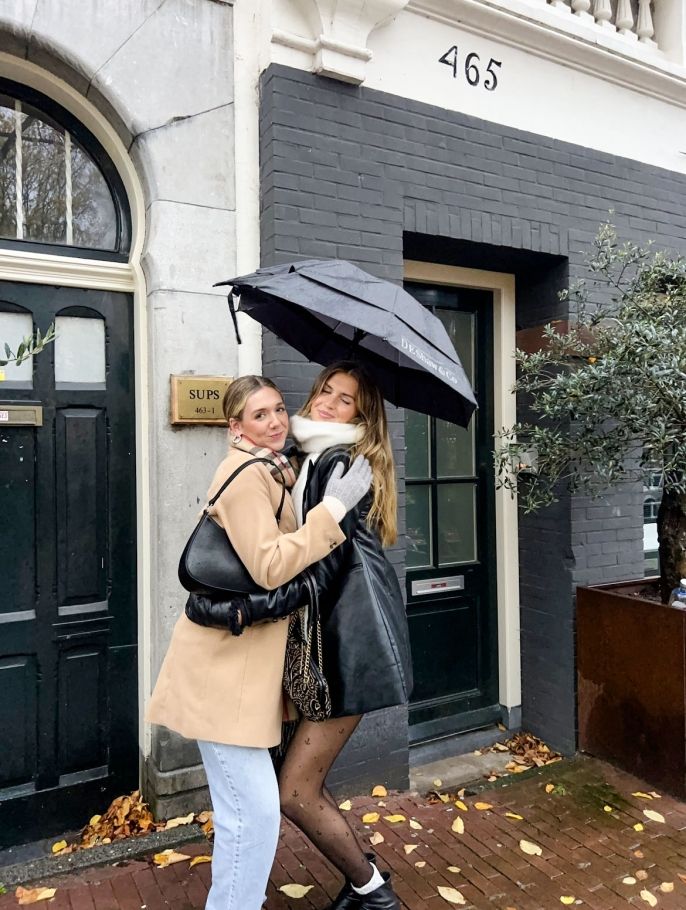Budgeting while studying abroad: 5 tips to minimize your spending and maximize your experience
By Tayler Baldwin
Studying abroad is an enriching experience that often comes with a whirlwind of excitement, cultural immersion, and, of course, new expenses. As a student abroad in London, I had to pay more attention to my budget than most - but the skills I learned from my experience were intrinsically valuable. With proper budgeting, you can make the most of your international adventure without breaking the bank. Here are five key tips and tricks to help you keep your spending to a minimum while maximizing your study abroad experience:
Create a Realistic Budget: Before you embark on your study abroad journey, it's crucial to create a realistic budget that considers all potential expenses. Include categories such as tuition, accommodation, food, transportation, and leisure activities. Research the cost of living in your destination and factor in any additional expenses unique to that location. By having a clear understanding of your financial commitments, you can make informed decisions and avoid unexpected financial stress. You might be tempted to change your budget based on the financial needs of your friends and other students you meet along the way - but it’s important to remember that everyone has different financial needs, and there’s no shame in being transparent about what activities you can or can’t do.
Cook at Home and Embrace Local Markets: Dining out regularly can quickly deplete your funds. To keep your spending in check, consider cooking at your CIEE accommodation, or your weekend accommodation, whenever possible. Staying in an Airbnb or Hostel on the weekend also allows for a kitchen, reducing the costs for eating out while traveling away from your home institution. Opting for local grocery stores and markets while doing weekend trips not only saves money but also provides an opportunity to explore local ingredients and culinary traditions. Prepare simple and nutritious meals that align with your budget, and reserve dining out for special occasions. And if you do feel the urge to dine out, street food is often low-cost and showcases the flavor and culinary palate of a local area.
Explore Free and Low-Cost Activities: A significant part of studying abroad is exploring the culture and attractions of your host country. Fortunately, many cities offer a plethora of free or low-cost activities. Take advantage of museums' free admission days, explore public parks, and attend community events. Engaging in local culture doesn't have to come with a hefty price tag, and you'll likely discover hidden gems that won't be found in tourist guides. London has a variety of student-friendly and low-cost activities - the majority of museums in London are free with a Student ID card, and browsing around food and vendor markets and local parks are great low-budget options.
Use Public Transportation: Transportation costs can add up quickly, but there are often affordable alternatives to taxis and rental cars. Research and familiarize yourself with the local public transportation system - buses and other forms of public transport can be daunting in new places, but Ubers and Taxis can add up quickly every weekend. Whether it's buses, trams, or trains, using public transit not only saves money but also provides an authentic experience of daily life in your host city. As a student from a small college town, London public transport seemed daunting, but at the end of my trip I was a London Underground expert.
Studying abroad on a budget is not about limiting your experiences; it's about making thoughtful choices that allow you to savor every moment without sacrificing your financial stability. By creating a realistic budget, cooking at home, exploring low-cost activities, utilizing public transportation, and taking advantage of student discounts, you can strike a balance between financial responsibility and the incredible adventure of studying in a new country. With careful planning, you'll find that your study abroad experience can be both enriching and financially sustainable.
Related Posts

CIEE Study Abroad Housing Options: Everything You Need to Know
If you’re considering a study abroad program, it’s likely that you’re also thinking about your housing options! While you’re anticipating exciting courses and foreign country exploration, having a better understanding... keep reading

Eat, Drink, Explore: London
BEST FOOD TO EAT IN LONDON While the exact location of the first fish and chip shop remains unclear, the earliest known shops opened in England in the 1860s, courtesy... keep reading

10 Best Study Abroad Programs in Europe for Spring 2026
Dreaming of a European adventure? Start here with 10 of the best 2026 spring study abroad programs in Europe. Explore your options, pick your favorite, and get ready for an... keep reading

